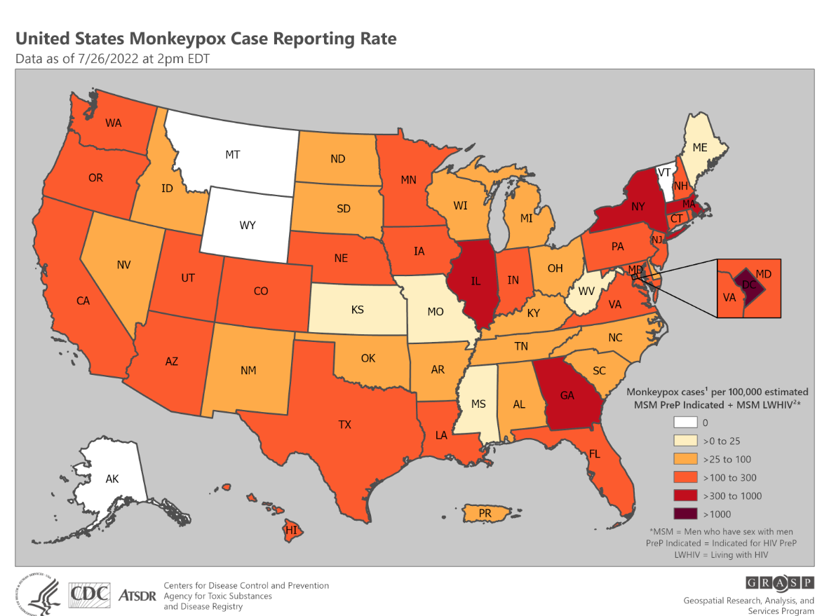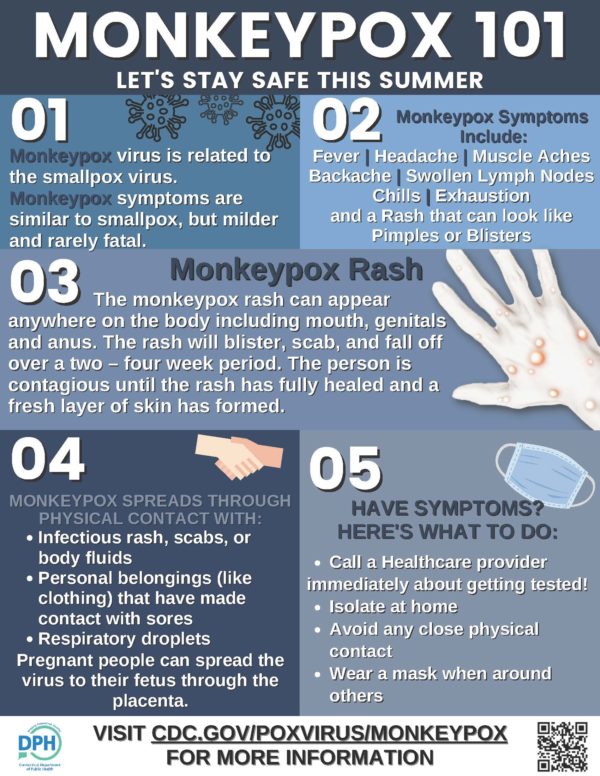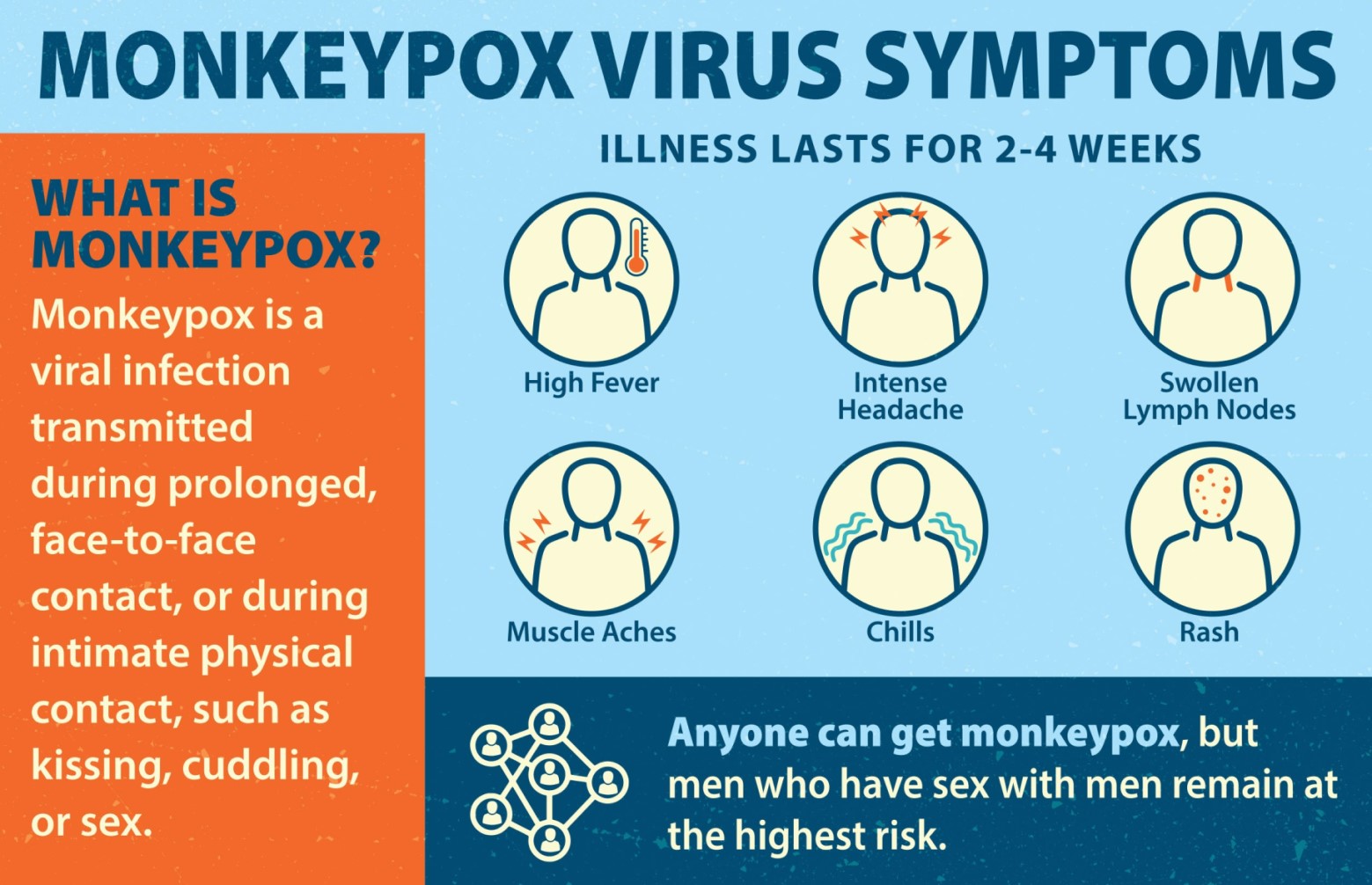


Florida Department of Health Resources - Monkey Pox
What is monkeypox?
Monkeypox is a rare disease caused by a virus that occurs mostly in central and western Africa. However, monkeypox infections also occur in other parts of the world. The monkeypox virus can be transmitted from animals to humans. These animals include different African rodents and monkeys. Once a person becomes infected with the monkeypox virus they can pass it to other people. Monkeypox is not a very contagious disease, and the risk of contracting monkeypox is generally low. Recently there has been an increase in human monkeypox infections in different parts of the world, including the US.
Monkeypox typically begins with flu-like symptoms (e.g., fever, chills, headache, tiredness, muscle aches) and swelling of the lymph nodes and progresses to a rash on the face and body. Duration of illness is usually 2 to 4 weeks.
Human-to-human transmission generally requires prolonged, face-to-face contact, direct contact with an active rash, or indirect contact with an active rash through contaminated items, such as contaminated clothing. Therefore, the risk of exposure remains low.
Transmission can occur through:
- Direct contact with an infected person or animal.
- Direct contact with infected materials, such as an infected person’s clothing or hospital bedding.
- Breathing in or other exposure to large respiratory droplets during extended contact (3 hours or more) with an infected person without appropriate respiratory protection, such as a mask.
- It is not known whether sexual transmission occurs. It can take between 5 and 21 days to show symptoms of monkeypox after infection.
Prevention and Treatment
The risk of monkeypox to the general public is usually low. Vaccines used for smallpox have been shown to be effective in preventing monkeypox. For people who become infected, are exposed to people diagnosed with monkeypox, or have a job that puts them at risk for monkeypox, they should contact their health care provider. If you become infected, avoid contact with people and pets—stay isolated from others and animals as much as possible.
Recommendations for the prevention and treatment monkeypox include the following:
- Vaccination is recommended if started within 14 days of exposure to a person infected with monkeypox.
- Vaccination is recommended for people with certain job-related risks such as public health laboratory staff.
- Antiviral medications that were developed for use in patients with smallpox may be beneficial for people with confirmed monkeypox infection.

Monkeypox is not a new disease, and in some African countries, it is an endemic. However, the international outbreak which began in May 2022, has prompted the World Health Organization (WHO) to declare a global health emergency.
Monkey Pox Society Guidelines
- AADA Monkeypox Resources
American Academy of Dermatology Association
- AAFP Monkeypox Resources for Family Physicians
American Academy of Family Physicians
- AAP Monkeypox Patient Care Resources
American Academy of Pediatrics
- ACEP Monkeypox Field Guide
American College of Emergency Physicians
- ACS Monkeypox Brief
American College of Surgeons
- ANA Monkeypox Resources
American Nurses Association
- CHEST Monkeypox Resources
American College of Chest Physicians
- SCCM Clinical Resources for Monkeypox
Society of Critical Care Medicine
- SMFM Monkeypox Guidance
Society for Maternal-Fetal Medicine











